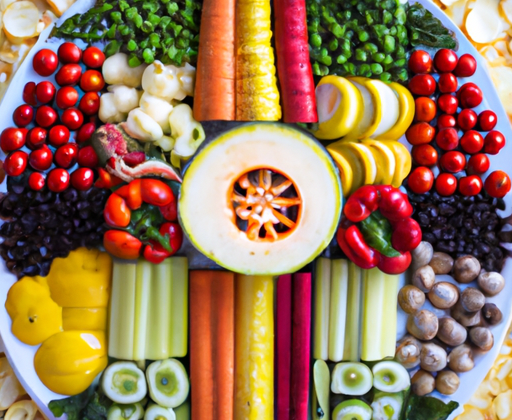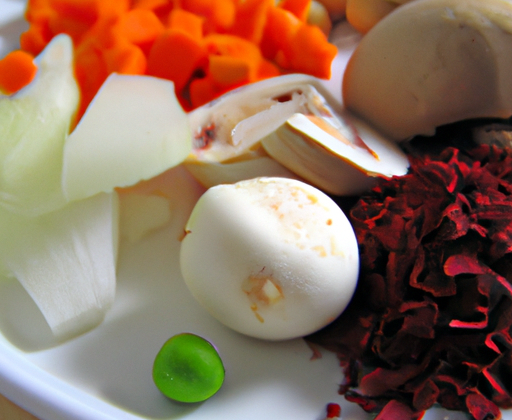Introduction
Exercise and nutrition go hand in hand when it comes to staying healthy. But what exactly is nutrition and exercise? Nutrition is the study of food and how it affects our physical, mental and emotional health. Exercise is any bodily activity that develops or maintains physical fitness and overall health. Together, these two elements can create an incredibly powerful combination for maintaining a healthier lifestyle.
The benefits of combining nutrition and exercise are undeniable. Not only will you have more energy from the nutrients, you’ll also be able to control your weight, reduce stress levels, and improve your overall physical health. There are so many ways to leverage this pairing and get the most out of it.
How Nutrition Impacts Physical Activity
When it comes to getting fit and staying in shape, it’s no secret that nutrition and physical activity go hand in hand. What you put into your body can have a big effect on how well you’re able to keep up with your workout routine. Here’s what you need to know about the ways nutrition impacts physical activity.
To get the most out of your workouts, you need to make sure that you’re properly fueling your body. Eating the right foods before and after a workout will help ensure that you have enough energy to get through those tough sets and reps. Before working out, it’s important to eat a balanced meal consisting of complex carbs and proteins. This will supply your body with the necessary fuel to make it through an intense exercise session. Afterward, you should consume a mixture of simple carbs and protein to help your body recover from the intense activity.
In addition to eating the right kinds of foods before and after a workout, it’s also important to understand the different types of macronutrients and micronutrients needed for optimal performance. Macronutrients include carbohydrates, proteins, and fats, while micronutrients are vitamins and minerals. Both types of nutrients play an important role in providing your body with the energy and nourishment it needs to function at a high level during physical activity.

By understanding how nutrition impacts physical activity, you’ll be able to make changes to your diet that will help you reach your fitness goals. Eating the right kinds of foods and making sure you have adequate amounts of macronutrients and micronutrients will ensure that you have the energy and endurance needed to get through any type of workout.
How Physical Activity Impacts Nutrition
It’s pretty simple: The more you move, the greater effect it’ll have on your diet. When it comes to nutrition and physical activity, there’s no one-size-fits-all mentality. Everyone’s body is unique and what works for one may not be the same as what works for another. That said, exercising helps make sure that you’re fueling your body in the most efficient way possible.
When you break a sweat, your body burns more calories than usual throughout the day. This means it uses more energy to carry out normal activities like walking, running, lifting weights, and performing household chores. Understanding how many calories you burn during exercise can help you better plan what and how much food you should eat to reach your health goals.
Whether you’re trying to lose weight, build muscle, or just stay healthy, it pays to eat the right foods after a workout. Eating the right blend of foods can help replenish your energy stores faster while providing the important nutrients your muscles need to recover and grow stronger. Complex carbohydrates, lean proteins, healthy fats, and other essential micronutrients should all be included as part of your post-exercise meal.
Tips for Combining Nutrition and Exercise
Making sure you get the right kind of food to fuel your body is essential when it comes to combining nutrition and exercise. Eating healthy is the key to achieving fitness goals. Here are some tips to keep in mind if you’re looking to level up your nutrition and exercise routine.
For starters, eating healthy foods is vital for any fitness plan. Fruits, vegetables, whole grains, lean proteins — these should all make up a big part of your diet, as they’re packed with the vitamins, minerals and antioxidants that you need to give you the energy you need for workouts. Make sure you’re getting enough of these nutrient-rich foods so you’re getting the most out of your exercise.
Calorie monitoring is also important. Pay attention to how many calories you’re consuming throughout the day, and adjust accordingly if you’re wishing to lose or gain weight through your nutrition and exercise combination. Tracking everything you eat will help you stay on top of your calorie intake and make sure you’re not overdoing it.
Finally, planning ahead can be a great way to ensure that you’re sticking to your nutrition and exercise goals. Prepping meals in advance and packing snacks to take with you on the go can save time and reduce stress. It can also help you create healthier habits and stay focused on making sure you’re taking in enough nutrients and burning enough calories.
Conclusion
It’s been said that you can’t out-train a bad diet, and exercises backed up by good nutrition is the real gold standard. Combining exercise with nutrition gives you the best of both worlds — the energy to power your workouts and the nutrients your body needs to recover.
But while nutrition and physical activity are both important, they don’t always go hand-in-hand — so it’s essential to take the time to understand how they interact. With proper knowledge, you’ll be able to create an effective plan that incorporates both.
To maximize the benefits of combining nutrition and exercise, focus on fueling your body before your workout, eating healthy foods throughout the day, and monitoring your caloric intake. Paying attention to these details and taking the time to plan ahead will help you get the most out of your workout routine.
By giving both nutrition and exercise the importance they deserve, you’ll be able to maximize your efforts, push yourself further, and reach your personal fitness goals. So, what are you waiting for? Get out there and show ‘em what you got!
FAQs on Nutrition & Exercise
How does physical activities affect food and nutrition?
I’m a big believer in the power of physical activity to affect food and nutrition. Being active helps keep our bodies in tip-top shape, and it can also help us make healthier food choices. Exercise can help us make better decisions about what we eat, and how much we eat.
When you exercise, your body needs energy, and that energy comes from the food you eat. Eating a healthy balanced diet with plenty of fruits, vegetables, and protein can provide your body with the energy it needs. Plus, physical activity helps us to manage our stress and stay focused on making good decisions about what we eat.
Physical activity also helps to burn off excess calories that might otherwise be stored in our bodies as fat. Working out helps us to keep our weight in check, which can prevent or reduce the risk of chronic health problems such as diabetes, heart disease, and high blood pressure.
Finally, being active can help to boost our mood and increase our self-confidence. Even a 20-minute walk can make a huge difference to our outlook and mental wellbeing. And it’s a lot easier to make healthy food choices when we’re feeling good about ourselves.
How nutrition and physical activity are connected to each other?
It’s hard to deny that nutrition and physical activity are interconnected. In the simplest terms, food provides the fuel our bodies need to do physical activity, while exercise helps our bodies convert that fuel into energy. From a more scientific perspective, the connection between nutrition and physical activity is even more complex. Eating a balanced diet is essential for providing our bodies with the nutrients to stay healthy and perform at their best, and physical activity helps our bodies use those nutrients efficiently.
Additionally, physical activity can help us maintain a healthy weight, which reduces the risk of developing chronic conditions like diabetes and heart disease. That’s why experts recommend combining a healthy diet with regular physical activity. Eating foods that are rich in vitamins, minerals, and other essential nutrients, and engaging in moderate-to-vigorous physical activity on a regular basis can help us stay healthy and fit.
When it comes to the connection between nutrition and physical activity, it’s important to note that they are two sides of the same coin. Eating a nutritious diet and exercising regularly can play a key role in promoting good health and well-being. So make sure you fuel up with healthy food and move your body every day!
How does nutrition play a role in physical fitness and physical performance?
I’m no nutrition expert, but I’ve been around the fitness block a few times, so I can tell you that getting your nutrition right is the key to improved physical performance. No matter how hard you push yourself in the gym, you won’t maximize your fitness gains if you’re not eating right.
Nutrition is key to fueling your body with the energy it needs to power through your workouts and reach your fitness goals. A good diet ensures your body has all the essential nutrients, vitamins, minerals, and macronutrients it needs to perform at its best. You don’t want to be bogged down in the gym with a lack of energy or strength.
Eating healthy on the regular is also essential for helping your muscles recover after an intense workout. Protein, carbs, and healthy fats are all essential for helping rebuild muscle and repair any damage that may have been done to your muscles during the workout. Without enough of these substances, your body won’t be able to heal itself properly, and you won’t be able to get the most out of your workouts.
Finally, nutrition is crucial for making sure you stay healthy and injury-free. Eating a well-balanced, nutrient-dense diet helps ensure your body is getting the vitamins and minerals it needs for healthy bones, joints, and muscles. If your body is strong and healthy, you won’t be at risk of injuries that can prevent you from reaching your fitness goals.

